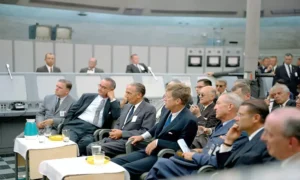How Few Politicians Really Know What Their Colleagues Think
 To understand why there is a need to change the way Congress does business, one needs to take into account the fact that most representatives and members of Congress have never held or serve in public office, and most of those who have never held office are relatively young. This means that the average member of Congress likely has never actually spoken to many clients or fellow citizens in their own communities. Many of the most effective lawmakers are indeed very savvy community organizers and can use their influence among their constituents to get their bills passed. Yet when it comes to how the legislature gets its work done, most representatives and members of Congress simply take their cues from the majority party in the chamber and move their requests through the process as quickly as possible.
To understand why there is a need to change the way Congress does business, one needs to take into account the fact that most representatives and members of Congress have never held or serve in public office, and most of those who have never held office are relatively young. This means that the average member of Congress likely has never actually spoken to many clients or fellow citizens in their own communities. Many of the most effective lawmakers are indeed very savvy community organizers and can use their influence among their constituents to get their bills passed. Yet when it comes to how the legislature gets its work done, most representatives and members of Congress simply take their cues from the majority party in the chamber and move their requests through the process as quickly as possible.
This means that most members of Congress simply follow whatever orders their party leaders layout for them. Unfortunately, this leads many members of Congress to take extremely inefficient and counterproductive actions in the way of lawmaking. It also means that many representatives and members of Congress have absolutely no idea how the system actually works. This can lead to major shortfalls in government because the systems that Congress is designed to work with are far too complex for the average member of Congress to understand on their own. That is why political scientists have begun to look at the legislative process as a microcosm of American society the Representatives and Senators actually know a lot about how society operates, but the American people have little knowledge of how their representatives actually work to get things done, even though they know much about government.
In order to understand how the legislature gets things done, political scientists have developed something called a behavioral set theory. The theory is that given a set of rules, which govern how members of Congress try to do their lawmaking, members of Congress will tend to behave in ways that maximize their own personal effectiveness scores, rather than maximizing the set of rules that the members of Congress are required by law to follow. In other words, in order to get things done the way they want, and with the fastest time frame, members of Congress deliberately do nothing that increases their personal effectiveness scores.
For example, one study of Congress showed that when members of Congress were asked if they favored or opposed raising the debt limit, a clear majority said that they favored increasing the debt limit. But when the researchers asked them to describe their own personal opinions about debt-limit legislation, it was found that most members of Congress had no opinion whatsoever. In this case, the members of Congress were not just acting in response to public policymakers; they were acting on their own, and their own personal policy preferences. The same thing holds true for other types of legislation.
Does it follow from this that members of Congress don’t really know what they’re doing? It does follow that members of Congress don’t really understand policymakers. In fact, policymakers know very well what their members want, but they don’t know what members will say, or what members will do, because they don’t follow the members around like pawns. Members of Congress act according to the wishes of the policymakers.
Why is it that many members of Congress think that members of Congress know what their fellow members are thinking, but that’s not necessarily true? One possible reason is that members of Congress may follow the policy preferences of influential business groups and special interest groups. If those groups want something, they’ll ask their members to vote for it. Those members who voted along with the group may then feel pressure from the group not to stray from their own positions.
Another reason that members of Congress don’t really know what their fellow members are thinking may be that many members are themselves members of special interest groups. They have members who work on issues that interest these groups. However, because these members are part of special interest groups, they might feel pressure from the group not to stray from their own positions, even if that means voting against the will of the rank and file members of Congress. What members of Congress really know could be what the special interests want them to know. They could also be working within their committees to ensure that regulations and laws that affect those special interests get passed.
It’s true that members of Congress get regular advice about how to proceed with legislation. They’re given plenty of reports and studies about what type of legislation would be best to pass. But this is not always what members of Congress really listen to. Sometimes, they might listen to what their colleagues on Capitol Hill tell them, but decide that they prefer to make their own decisions on matters of importance. As a result, they end up voting against the wishes of their constituents, even when the policy results in more policymaking rather than less.
